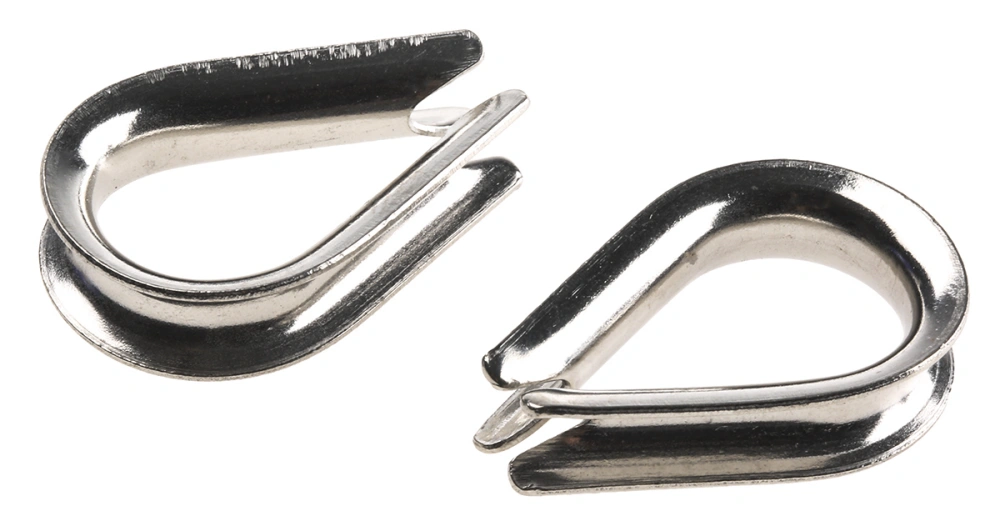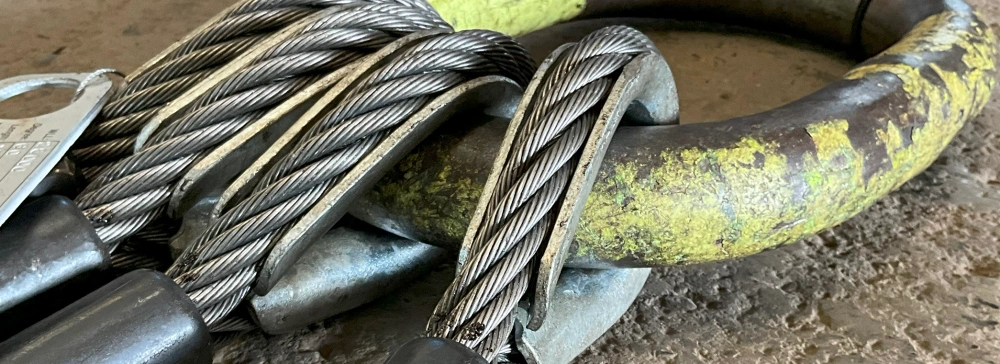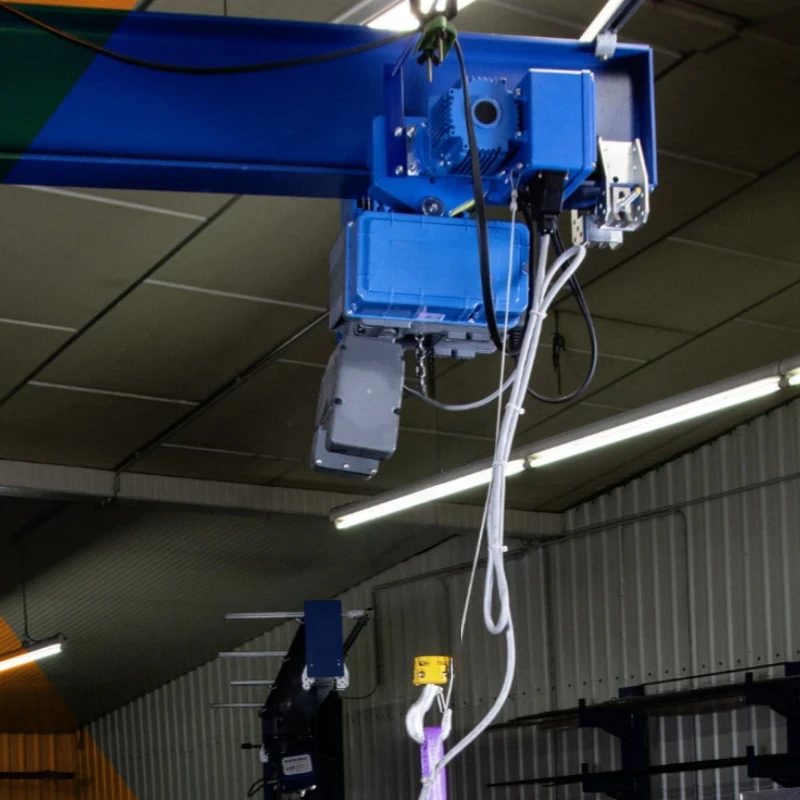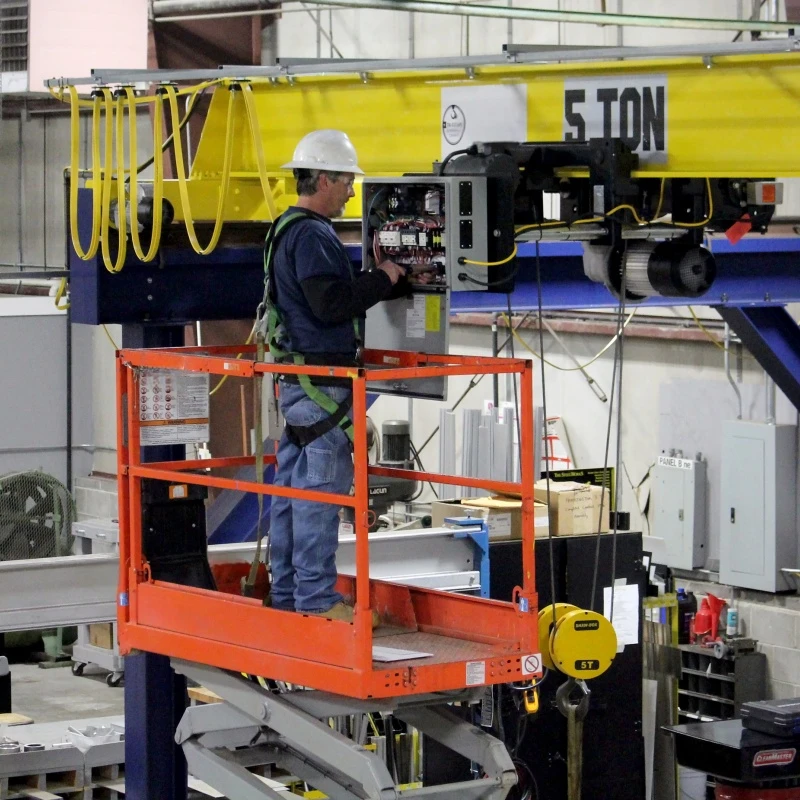When you ask what is a wire rope thimble, you look for a simple but essential hardware piece. A wire rope thimble fits inside the loop of a wire rope, forming a solid, curved channel that protects the rope from wear and deformation.
You rely on this component to keep your rigging safe and extend the life of your cables. Manufacturers use several materials for thimbles, as shown below:
Material | Description |
|---|---|
Steel | A strong and durable material is commonly used. |
Aluminum | A lightweight alternative to steel. |
Plastic | Used for lighter applications and cost-effectiveness. |
Key Takeaways
A wire rope thimble protects the wire rope from wear and deformation, extending its life and ensuring safety during lifting operations.
Choose the right size thimble to match your wire rope diameter. This ensures optimal performance and prevents damage.
Select stainless steel thimbles for environments prone to corrosion, such as marine settings, to enhance durability and reduce maintenance.
Regularly inspect and maintain your thimbles to prevent operational failures. Look for signs of wear, and replace damaged components promptly.
Use heavy-duty thimbles for lifting tasks and dynamic loads. They provide superior strength and reliability in demanding conditions.
What is a Wire Rope Thimble?

Main Function
When you ask what is a wire rope thimble, you look for a device that supports and shapes the loop at the end of a wire rope. You use this hardware to create a secure connection point for hooks, shackles, or other lifting components.
The main function centers on maintaining the integrity of the wire rope loop, especially when you handle heavy loads or demanding rigging tasks.
A wire rope thimble fits snugly inside the loop, giving it a solid, curved channel. This design ensures the loop does not collapse or flatten under pressure. You rely on the thimble to distribute the load evenly across the wire rope, which helps prevent weak spots and extends the life of your rigging.
When you install a thimble, you create a professional-grade termination that meets industry standards for safety and reliability.
Tip: Always match the thimble size to your wire rope diameter for optimal performance and safety.
You often see wire rope thimbles in construction, marine, and industrial settings. You use them to connect slings, tie-downs, and mooring lines. When you want to know what a wire rope thimble is, remember that it is the key to forming strong, reliable loops that stand up to repeated use and heavy loads.
Protective Role
You depend on the protective role of a wire rope thimble to keep your equipment safe and functional. The thimble acts as a barrier between the wire rope and external forces, reducing the risk of abrasion and deformation at the attachment point.
You prevent the wire strands from fraying or breaking by using a thimble, especially when the loop connects to hardware with sharp edges or rough surfaces.
The thimble protects the wire rope from abrasion and deformation at the attachment point.
It maintains the shape of the wire rope loop, which is essential for load distribution.
The design allows for a smooth bend radius, reducing wear and fatigue on the wire rope.
When you ask what is a wire rope thimble, you discover that its curved shape creates a smooth surface for the wire rope to bend around. This feature reduces stress and fatigue, which can lead to premature failure. You also notice that the thimble helps the loop retain its original shape, even after repeated loading and unloading.
You choose a wire rope thimble when you need to protect your investment and ensure long-term performance. The thimble gives you confidence that your rigging will hold up in tough conditions, whether you work in marine environments, construction sites, or industrial facilities.
When you understand what is a wire rope thimble, you recognize its value in every application that demands strength and durability.
Wire Thimble Types
Standard and Heavy Duty
You encounter two main categories when you select a wire rope thimble for your project: standard and heavy-duty. Standard thimbles work best for static applications where the load remains constant and the risk of movement is low. You use them in settings that do not require lifting or exposure to harsh environments.
Heavy-duty thimbles, on the other hand, offer superior strength and durability. You rely on these for lifting tasks, dynamic loads, and demanding conditions in marine or industrial environments.
Type | Load Capacity | Durability |
|---|---|---|
Standard Thimble | Not suitable for lifting | Designed for static requirements |
Heavy-Duty Thimble | Suitable for lifting | Crafted for marine and industrial use, resistant to rust and corrosion |
You often see heavy-duty thimbles made from galvanized steel or corrosion-resistant 316 stainless steel. These materials help prevent rust and extend the lifespan of your rigging hardware. You choose heavy-duty thimbles when you need to reinforce and protect the eye of a wire rope loop, especially under heavy loads.
Note: Heavy-duty thimbles enhance strength and longevity in construction, marine, and industrial settings.
Stainless Steel Thimble by Powerful Machinery

You demand reliability and performance when you add a cable thimble to your rigging system. Powerful Machinery’s stainless steel thimble stands out for its robust construction and advanced features.
Crafted from AISI 304/316 stainless steel, this thimble offers excellent resistance to corrosion, making it ideal for marine, towing, and industrial applications. You benefit from a large, rounded shape that allows handling loads from multiple directions, and the screw pin design ensures easy installation and removal.
Feature | Description |
|---|---|
Material | Made from AISI 304/316 stainless steel for superior corrosion resistance |
Design | Screw pin for quick installation and removal |
Application | Suitable for marine, rigging, towing, and vehicle recovery |
Shape | Large, rounded shape for multi-directional load handling |
Custom Solutions | Custom-engineered options for specific requirements |
Quality Assurance | Rigorous testing for strength and durability |
Customer Support | Expert advice and assistance available |
You notice that stainless steel thimbles require less maintenance and offer a longer lifespan compared to galvanized steel options. In marine environments, stainless steel thimbles resist surface rust and reduce the need for frequent replacement.
Powerful Machinery’s commitment to quality ensures you receive a product that meets strict industry standards and delivers consistent performance.
Tip: Choose stainless steel thimbles for environments where corrosion is a major concern and durability is essential.
You see ongoing advancements in thimble manufacturing, such as precision engineering, rigorous testing, and custom solutions from leading Chinese manufacturers. These improvements guarantee you get reliable hardware for every application.
Wire Rope Thimble Uses

Applications
You find the wire rope thimble in a wide range of industries where safety and durability matter most. When you add a cable thimble to your rigging, you create a secure loop that stands up to heavy loads and harsh conditions. The most common applications include:
Application | Description |
|---|---|
Industrial & Crane | Handles high loads and resists abrasion and corrosion in lifting operations. |
Mining | Delivers high tensile strength for demanding extraction tasks. |
Oil & Gas | Meets strict safety standards for critical lifting and hoisting. |
Construction | Supports growing infrastructure needs with reliable rigging solutions. |
Fishing & Marine | Provides corrosion resistance and long life in saltwater environments. |
You often see thimbles in telecommunications, cargo handling, and marine projects. Powerful Machinery supplies certified thimbles to these demanding sectors, ensuring you get products that meet international standards.
When you choose a thimble from a trusted supplier, you protect your investment and improve operational efficiency.
Problems Solved
You rely on a thimble to solve several key challenges in lifting and rigging. First, it prevents wear and tear on your wire ropes by creating a smooth channel for the loop. This design reduces friction and keeps the rope from fraying.
You also benefit from safe load distribution, which lowers the risk of internal strand distortion and sudden failure.
Maintains the shape of the wire rope loop, preventing premature wear.
Enhances the longevity of your rigging, especially in environments where corrosion is a concern.
Ensures secure connections when used with wire rope clamps, supporting compliance with ASTM and ISO standards.
When you use a wire rope thimble, you extend the life of your equipment and reduce maintenance costs. Powerful Machinery’s thimbles help you meet strict safety requirements, giving you peace of mind in every application.
Choosing a Wire Rope Thimble
Sizes
You must select the correct size to ensure safety and performance. The size of the thimble should match the diameter of your wire rope. Industry standards recommend maintaining a D/d ratio of at least 20:1 for most applications.
This ratio helps you retain up to 95% of the rope’s original strength. If you use a smaller ratio, you risk reducing the strength of your wire rope loop. Always measure your wire rope diameter before choosing a thimble.
D/d ratio of 30:1 or greater retains close to 100% strength.
D/d ratio of 20:1 retains 90–95% strength.
D/d ratio of 10:1 or less can reduce strength to 75–80%.
Tip: Measure both the wire rope and thimble carefully to avoid mismatches.
Selection Tips
You need to consider several factors when selecting a thimble for your application. Corrosion resistance is essential for marine and outdoor environments. Stainless steel thimbles, especially those made from 316 grade, offer superior protection against moisture and harsh conditions.
Load requirements also play a critical role. Choose high-strength materials for heavy-duty tasks. Environmental conditions affect your choice as well. For indoor use, you may opt for less expensive options, but outdoor projects demand corrosion-resistant materials.
Common mistakes can lead to equipment failure. Review the table below to avoid these errors:
Mistake | Solution |
|---|---|
Using a thimble that is too small | Choose a thimble that matches the size of the wire rope to avoid distortion or damage. |
Using a thimble that is too large | Ensure the thimble is appropriately sized to prevent distortion or damage to the wire rope. |
Follow manufacturer instructions during installation.
Insert the thimble correctly into the eye of the wire rope.
Tighten the ferrule to the correct torque.
Powerful Machinery Quality
You benefit from choosing Powerful Machinery for your wire rope thimble needs. The company offers certified products that meet international safety and quality standards. You can select from a wide range of sizes and materials, including high-grade stainless steel for maximum corrosion resistance.
Powerful Machinery provides custom-engineered solutions to fit your specific project requirements. You receive products that undergo rigorous testing for strength and durability.
Investing in high-quality thimbles may cost more upfront, but you gain reliability and long-term savings through reduced maintenance and replacement needs.
Note: Powerful Machinery’s commitment to quality ensures your rigging performs safely in the most demanding environments.
How to Use a Cable Thimble?
Installation Steps
You need to follow a clear process when learning how to use a cable thimble. Start by selecting the correct size thimble for your wire rope. Slide the end of the wire rope around the thimble, making sure the rope fits snugly into the curved groove. Use wire rope clips or ferrules to secure the rope tightly against the thimble.
Tighten all hardware according to the manufacturer’s instructions. Double-check that the loop maintains its shape and that the thimble sits firmly in place. This method ensures your connection remains strong and reliable.
Tip: Always use the right tools and certified hardware for installation. Powerful Machinery provides expert guidance and high-quality products to help you achieve safe, professional results.
Safety Tips
You must prioritize safety every time you handle rigging equipment. Inspect the wire rope and thimble before each use. Look for signs of wear, deformation, or corrosion. Never use a damaged thimble, as it can compromise the entire assembly. Wear gloves and eye protection during installation to prevent injuries.
Follow all safety guidelines and never exceed the rated load capacity. If you have questions about how to use a cable thimble safely, reach out to Powerful Machinery’s support team for advice.
Maintenance
Proper maintenance extends the life of your rigging hardware. Regular inspection and maintenance of wire rope thimbles help prevent operational failures that could cause accidents or property damage. Thimbles maintain the shape of the wire rope’s eye, reduce friction, and increase the lifespan of both the rope and the thimble.
You can maximize the lifespan of your thimble in outdoor settings by following these routines:
Regular Inspection: Check frequently for wear, damage, or other issues.
Cleaning: Remove dirt and contaminants to prevent accelerated wear and corrosion.
Lubrication: Apply suitable lubricants to reduce friction and protect against corrosion.
Replacement: Replace any worn or damaged components promptly.
Powerful Machinery’s stainless steel thimbles are designed for durability and easy maintenance, giving you confidence in demanding environments.
Conclusion
Wire rope thimbles play a vital role in keeping your lifting operations safe and reliable. When you choose a quality thimble, you reduce wear, prevent kinks, and maintain the strength of your wire rope.
Thimbles protect against abrasion and extend rope life.
They help distribute loads evenly and prevent weak points.
Select stainless steel thimbles for harsh environments and always inspect your hardware. For expert advice or custom solutions, visit Powerful Machinery.
FAQ
What size wire rope thimble should you choose?
You should match the thimble size to your wire rope diameter. Check manufacturer specifications for exact fit. Using the correct size ensures safety and prevents damage.
Can you use stainless steel thimbles in saltwater environments?
Yes, you can use stainless steel thimbles in saltwater. Stainless steel resists corrosion and rust, making it ideal for marine and outdoor applications.
How often should you inspect wire rope thimbles?
You should inspect thimbles before each use. Look for signs of wear, deformation, or corrosion. Regular checks help you maintain safety and extend equipment life.
Do you need special tools to install a wire rope thimble?
You need basic rigging tools, such as wire rope clips and ferrules. Follow the manufacturer’s instructions for installation. Using proper tools ensures a secure and safe connection.
Where can you buy certified wire rope thimbles?
You can purchase certified wire rope thimbles from Powerful Machinery. The company offers a wide range of sizes and materials for demanding applications.


